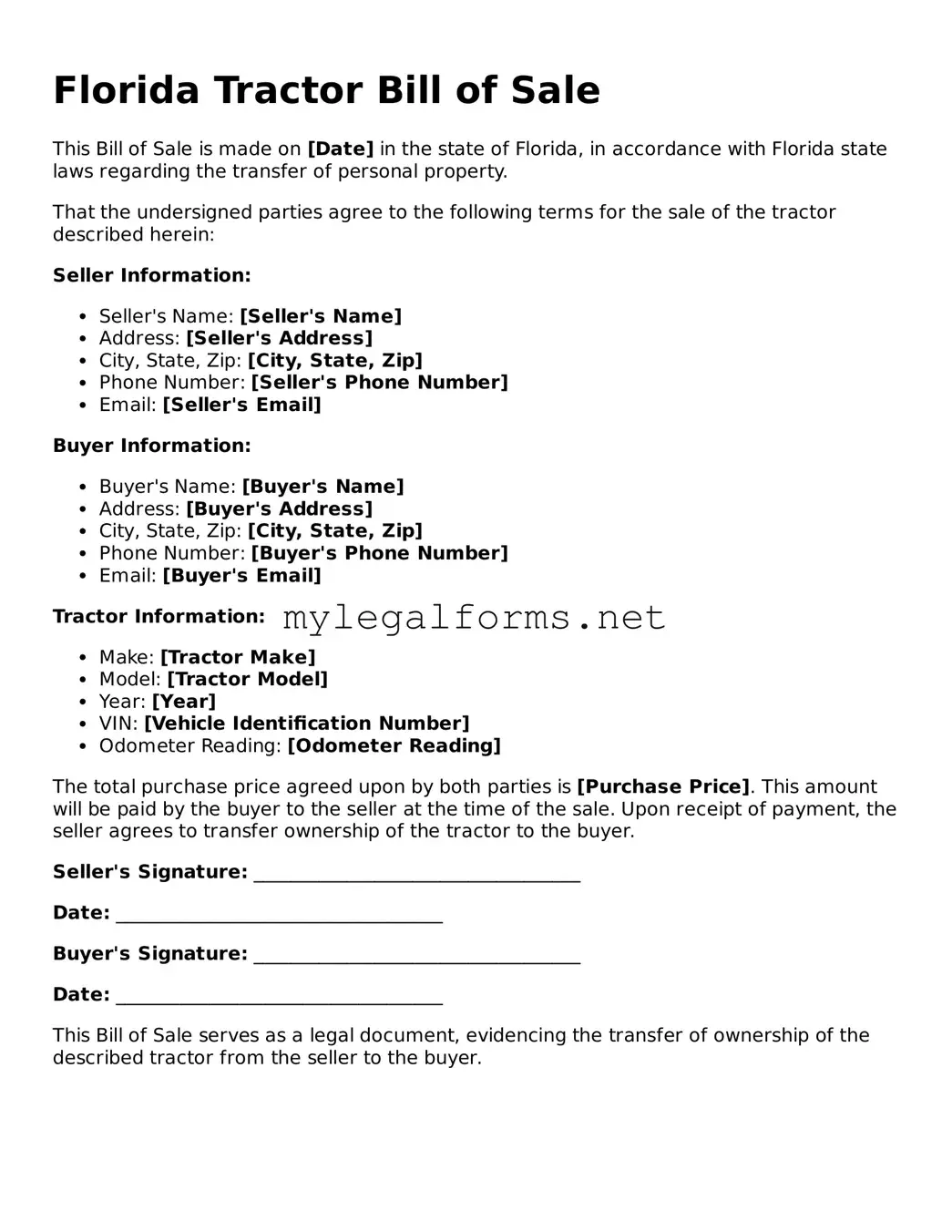When filling out the Florida Tractor Bill of Sale form, many individuals inadvertently make mistakes that can lead to complications down the line. One common error is neglecting to include the full name and address of both the buyer and the seller. This information is crucial for establishing a clear record of the transaction. Without it, disputes may arise regarding ownership or the terms of sale.
Another frequent mistake is failing to provide a complete description of the tractor being sold. It's important to include details such as the make, model, year, and Vehicle Identification Number (VIN). A vague description can lead to confusion and may even jeopardize the sale if the buyer believes they are purchasing a different vehicle.
Some people overlook the need for signatures. Both the buyer and seller must sign the document to validate the transaction. Without signatures, the bill of sale may not hold up in legal situations, which could create problems if either party decides to contest the sale.
Additionally, many individuals forget to indicate the sale price. Leaving this blank can lead to misunderstandings about the value of the transaction and may cause issues when it comes to taxes or future resale. Clearly stating the sale price helps to avoid any ambiguity.
Another common oversight is not dating the document. A date is essential as it provides a timeline for the transaction. This can be particularly important if any disputes arise later regarding the sale or ownership of the tractor.
People also often fail to check for any liens on the tractor. Before completing the sale, it’s wise to ensure that the tractor is free of any financial obligations. If a lien exists, the buyer could face unexpected challenges after the purchase.
Some sellers mistakenly believe that a verbal agreement is sufficient. However, without a written bill of sale, there is no formal record of the transaction. This can lead to misunderstandings and disputes, making it essential to always document the sale.
Another pitfall is not keeping a copy of the bill of sale for personal records. Both parties should retain a copy for their files. This serves as proof of the transaction and can be helpful in case of future disputes or if the buyer needs to register the tractor.
Finally, many individuals do not familiarize themselves with local regulations regarding the sale of vehicles. Each state may have specific requirements for bills of sale. Ignoring these regulations can lead to legal issues or complications with registration.
By being aware of these common mistakes, individuals can ensure a smoother transaction when filling out the Florida Tractor Bill of Sale form. Attention to detail and thoroughness can prevent future headaches and foster a successful sale.

